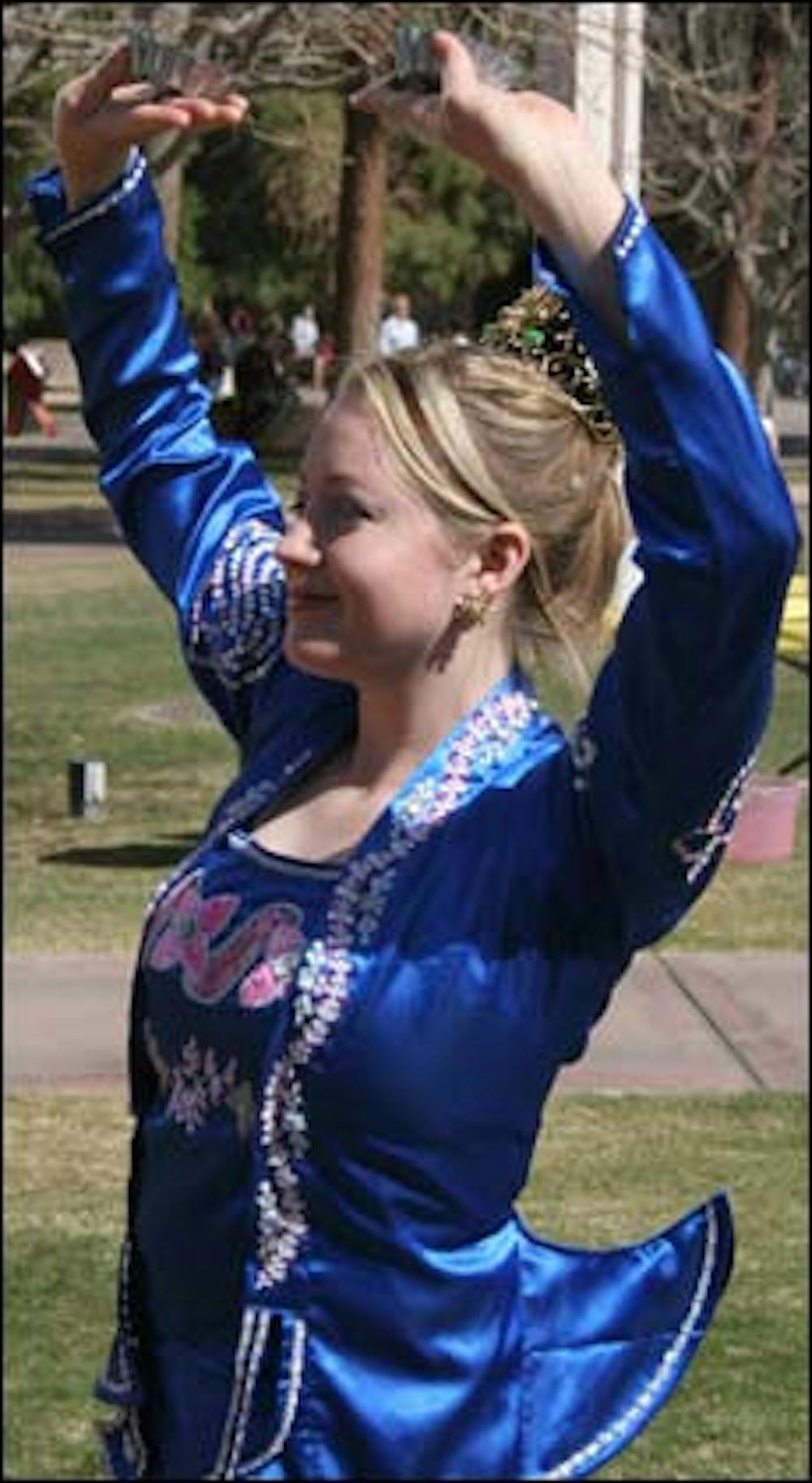African drumbeats, salsa dancers and cuisine from around the world brought about 2,000 people to Hayden Lawn Thursday for ASU's World Festival.
The festival featured 11 performances from cultural groups, and groups also staffed tables around the lawn.
Organizers moved the annual event from the Student Services Lawn this year and saw attendance double, said Julie Swensgard of the International Student Office.
"It was a good move," she said. "Everything fell together really well for us."
Business and Japanese senior Connie Liu, president of the Taiwan Study Society, represented her group at the festival.
"[The society's mission] is to promote Taiwan as an independent country and not part of China," she said.
Liu said she started at ASU five or six years ago.
"I wanted to go out and learn how to be independent and also learn a foreign language," she said.
Liu said she came to ASU after hearing about its business school from her classmates in Taiwan and consulting lists of top schools.
"The language was the biggest problem when I first arrived here," she added.
Liu also said she has had to adjust to cultural differences and that she misses Taiwanese food.
Because she didn't have a car for two years and couldn't drive to specialty supermarkets, Liu said she learned to prepare traditional recipes with ingredients found in regular grocery stores.
"Sometimes it's a challenge," she added.
At the other end of the lawn, industrial engineering graduate student Omar Ahumada said local Mexican restaurants couldn't match the cuisine from his hometown of Culiacan.
"Even though [chefs are] from Mexico, it doesn't mean it's the way from my state I'm used to cooking," he said.
Ahumada said when he came to ASU in 2001, he had to adjust to the large-lecture format and the technical vocabulary used in his classes. He said his undergraduate courses in Culiacan used Spanish-language terms.
His wife, bilingual-education graduate student Nadia Salazar, said she moved to Arizona to be with Ahumada.
But she said working at a preschool led her to enroll at ASU.
"I saw a lot of kids who were Mexican and didn't speak any English at all," she said. "So I decided to be a bilingual educator because this country needs bilingual educators, especially here in Arizona."
Both Ahumada and Liu said they would return home to find a job after graduating.
"My parents told me to study more, but I don't think I should spend any more of their money," Liu said.
Dominic Amorosia of Fort Collins, Colo., said he was vacationing in the Valley and stopped by the festival on his way to check his e-mail in Hayden Library.
"I'm glad I got to see it," he said. "I feel pretty lucky."
Amorosia, who graduated from Colorado State University in Fort Collins in 2003, said he enjoyed performances from ASU's Hip-Hop Coalition and a Mexican guitarist.
"You don't see that a lot at CSU," he said. "I think there's more diversity at ASU, and I was glad to stumble upon it."
Reach the reporter at brian.indrelunas@asu.edu.




